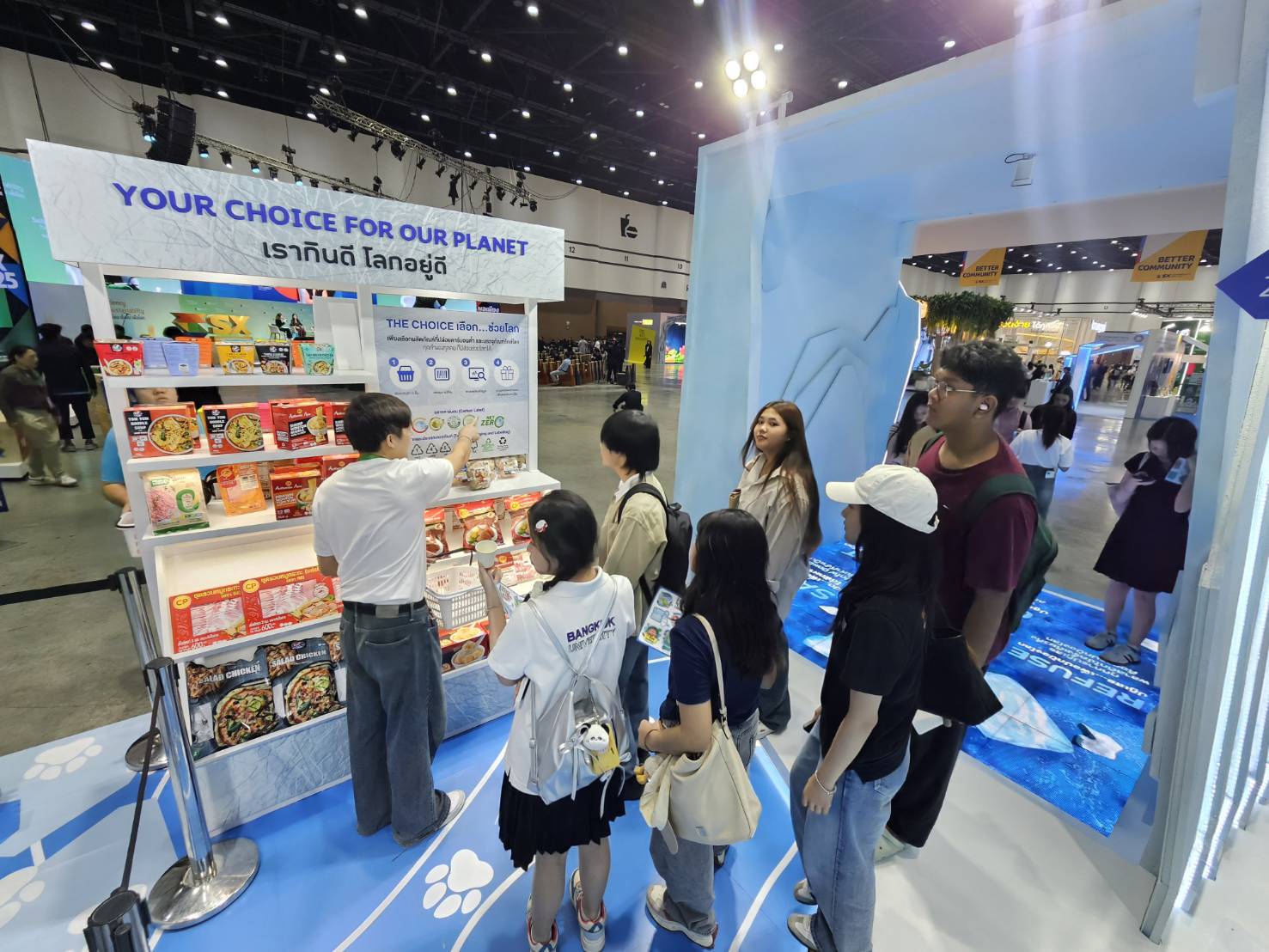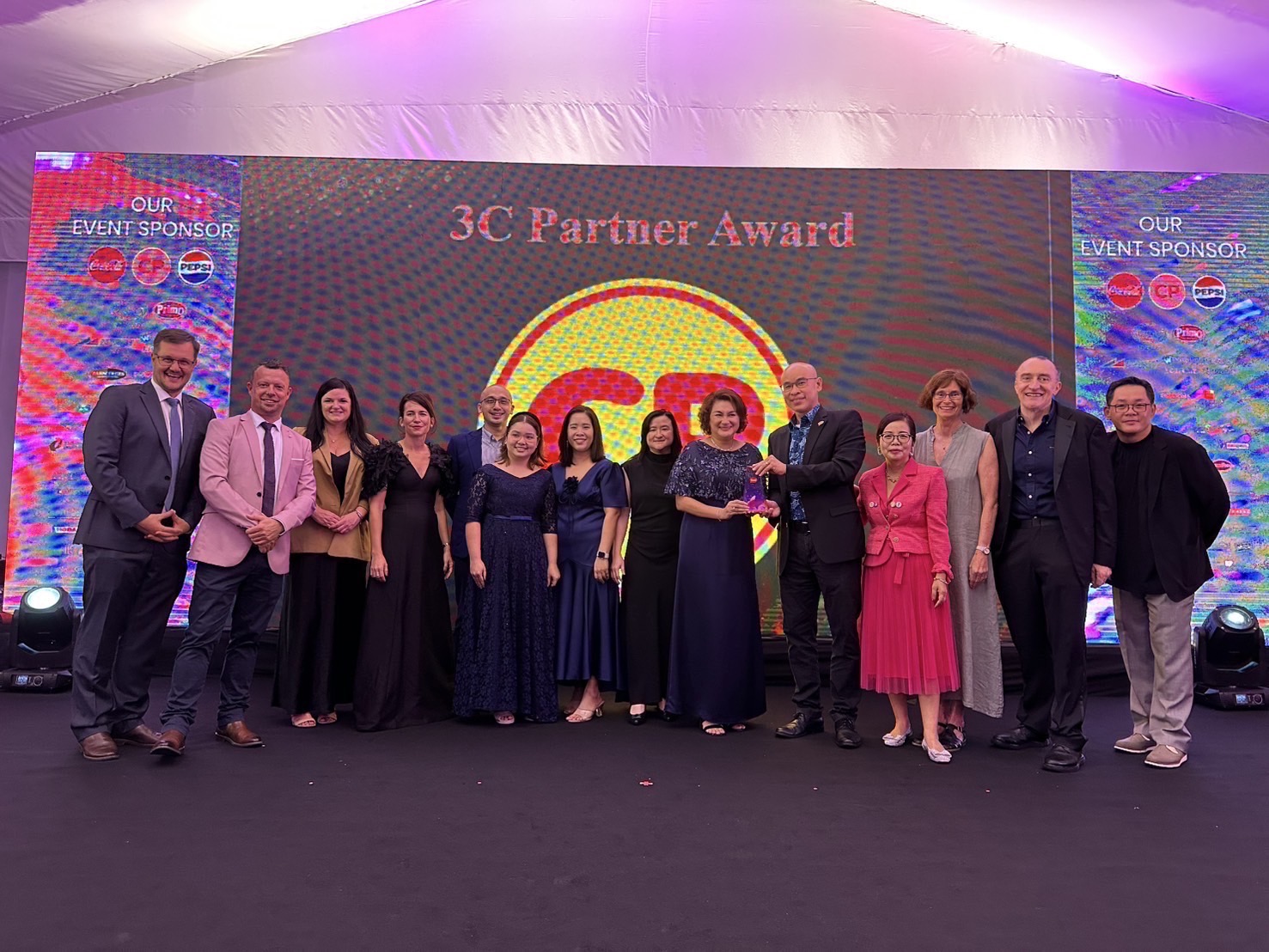
Under the vision of being “Kitchen of the World”, Charoen Pokphand Foods Plc (CPF) is one of the leading companies in mitigating ‘global warming’ and taking part in environmental and natural conservation.
Recently, CPF initiated “CPF’s Product Sustainability” scheme to ensure a green supply chain from upstream to downstream. The scheme is in accordance with the Product Life Cycle Assessment, ranging from animal feed raw material to product delivery. The assessment covers all aspects and enables traceability. This scheme will assure consumers that they not only consume quality and safe products but also help protect the earth by utilizing natural resources with responsible manner.
Kularb Kimsri, Assistant Vice-President, CPF Global Standard System Center, said under the CPF’s Product Sustainability scheme, the company has applied the Product Life Cycle Assessment to trace the origins of products used in the production process from upstream to downstream. Like other leading global companies, CPF is concerned about climate change and is willing to shift its businesses toward sustainability.
As a result of CPF’s Product Sustainability scheme, CP’s fresh chicken and Roasted chicken Strips have been the first two products in the world were granted certification as “ProSustain” by Det Morske Veritas (DNV-GL), the global certification body, since 2013.
Currently, CPF’s sustainable chicken products include 700 items, 430 of which are fresh chicken for the domestic market and 270 are cooked chicken for export to the European market with a shipment value of about seven billion baht.
This policy is a result of research and development aimed at determining the impact of the company’s production process and products on many aspects of the social and natural environment of all stakeholders. It covers the entire system from the animal feed production process to animal welfare, meat processing, consumption and waste management. CPF has applied Eco-Efficiency Analysis aimed at studying and minimizing the impact on the social and natural environment.
In addition, CPF has focused on maximizing the use of natural resources. Raw materials and energy are used efficiently to reduce waste in all production processes. As waste has affected the social and natural environment directly, CPF has changed waste into power for use in its production process.
CPF also taps into the Circular Business Model, aiming to promote energy security through the supply chain. The company buys agricultural waste and turns it into biomass energy, which is used to produce steam power in animal feed production. Animal manure from the farm is converted to fertilizer for the company’s plantations. Waste water from the farm and processing plants is treated into biogas. This reduces the use of fossil fuels and minimizes air pollution.
CPF uses new, fresh and high quality cooking oil in its deep-frying cooking because of its concern about consumer health. Used cooking oil is converted to bio-diesel for transportation. CPF does not re-use cooking oil over and over because the company cares about the health of consumers and society.
By the end of this year, CPF plans to extend the range of sustainable products to prawn and pork items, both for export and for the local market, and introduce ‘Online Traceability’ for these products by next year. Also, the company has plans to win more carbon footprint labels. It is also concerned about water shortage and will address water footprint issues to raise consumer and social confidence in the company.









